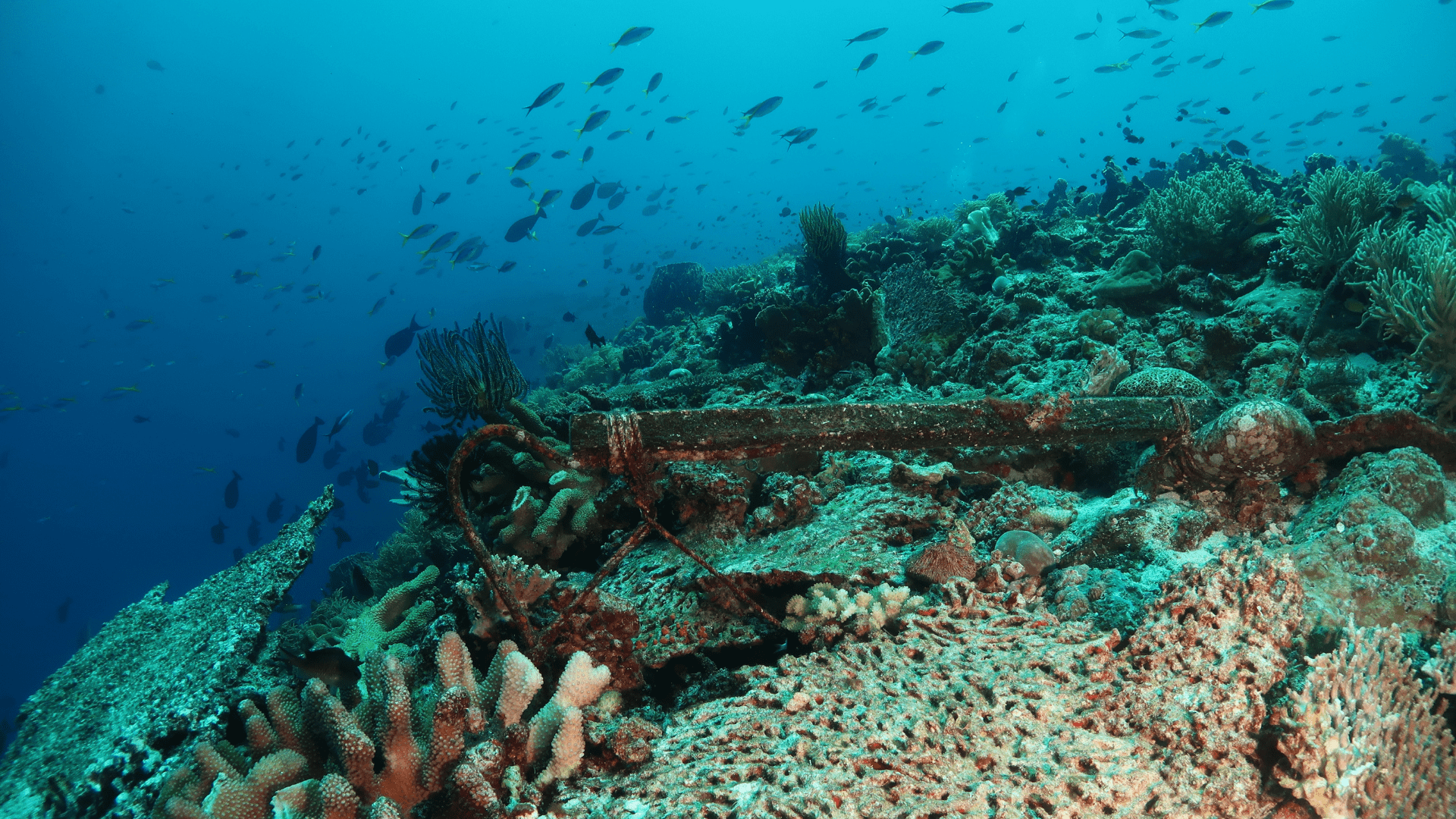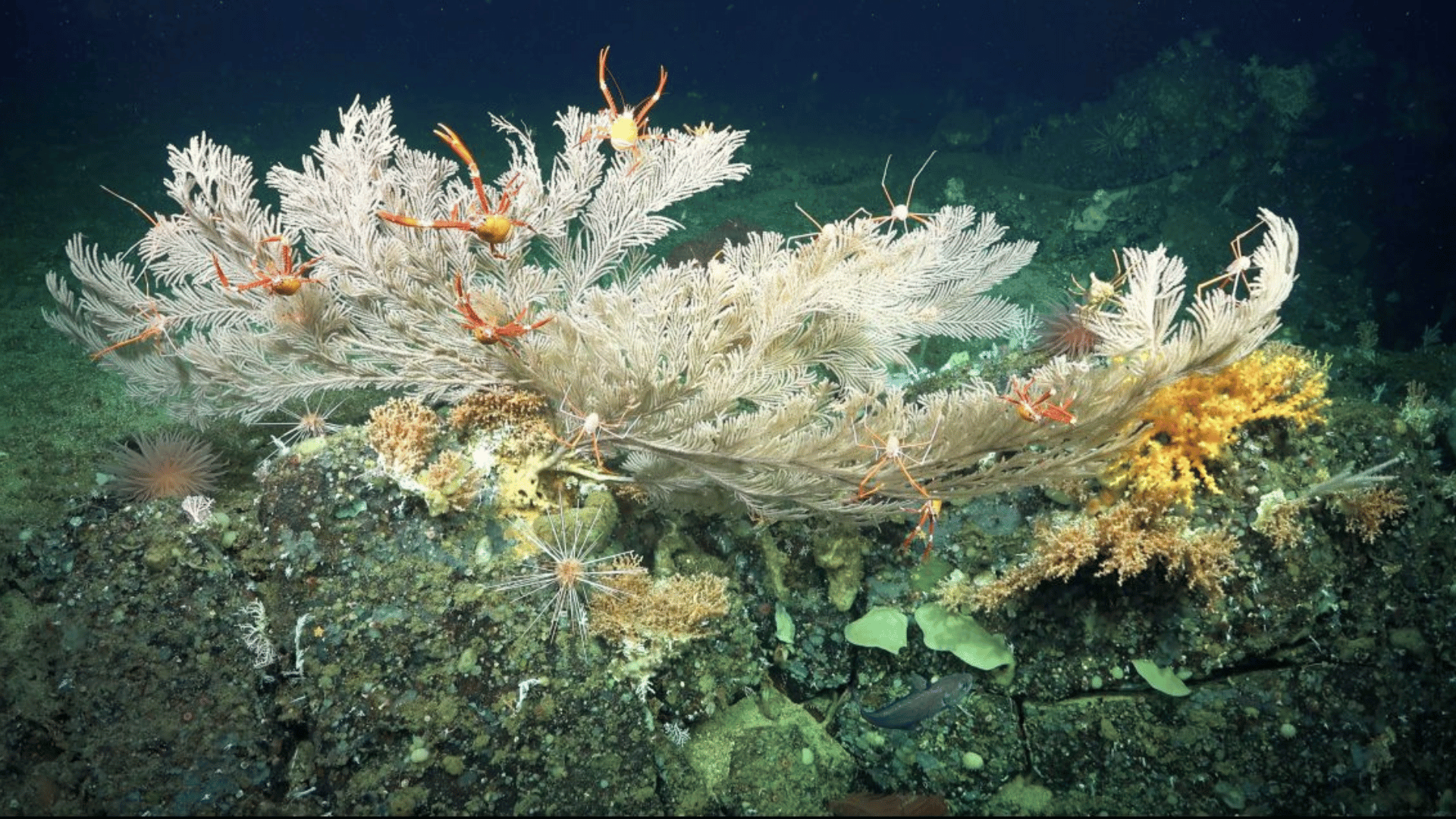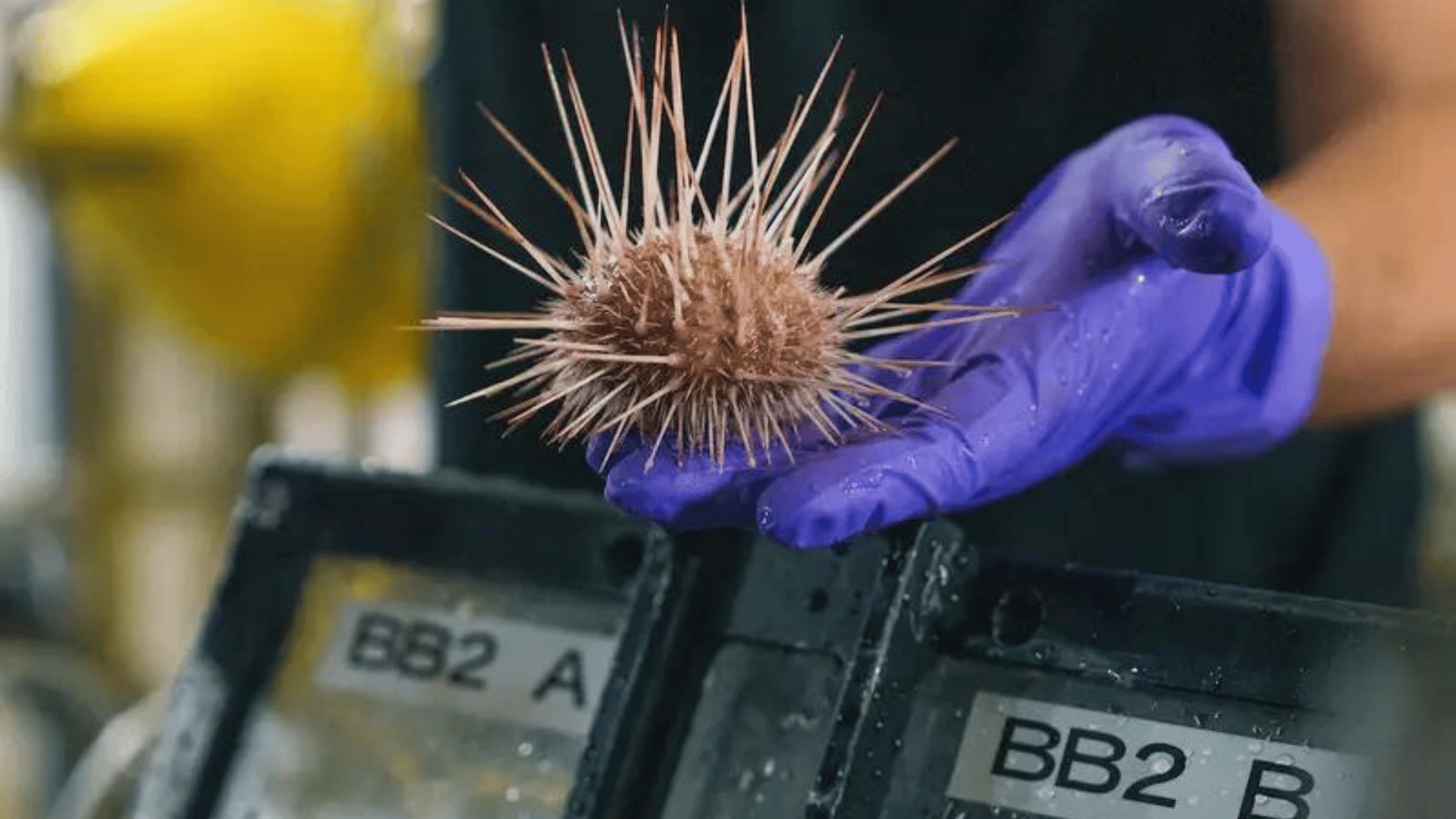One of Earth’s greatest mysteries is what lives in the ocean’s depths. As of 2023, humans have only explored 5% of the ocean, leaving 95% a mystery. In Oregon, people on the beach caught a glimpse of what lives below when a rare deep-sea fish washed up on the coast.
Pacific Footballfish
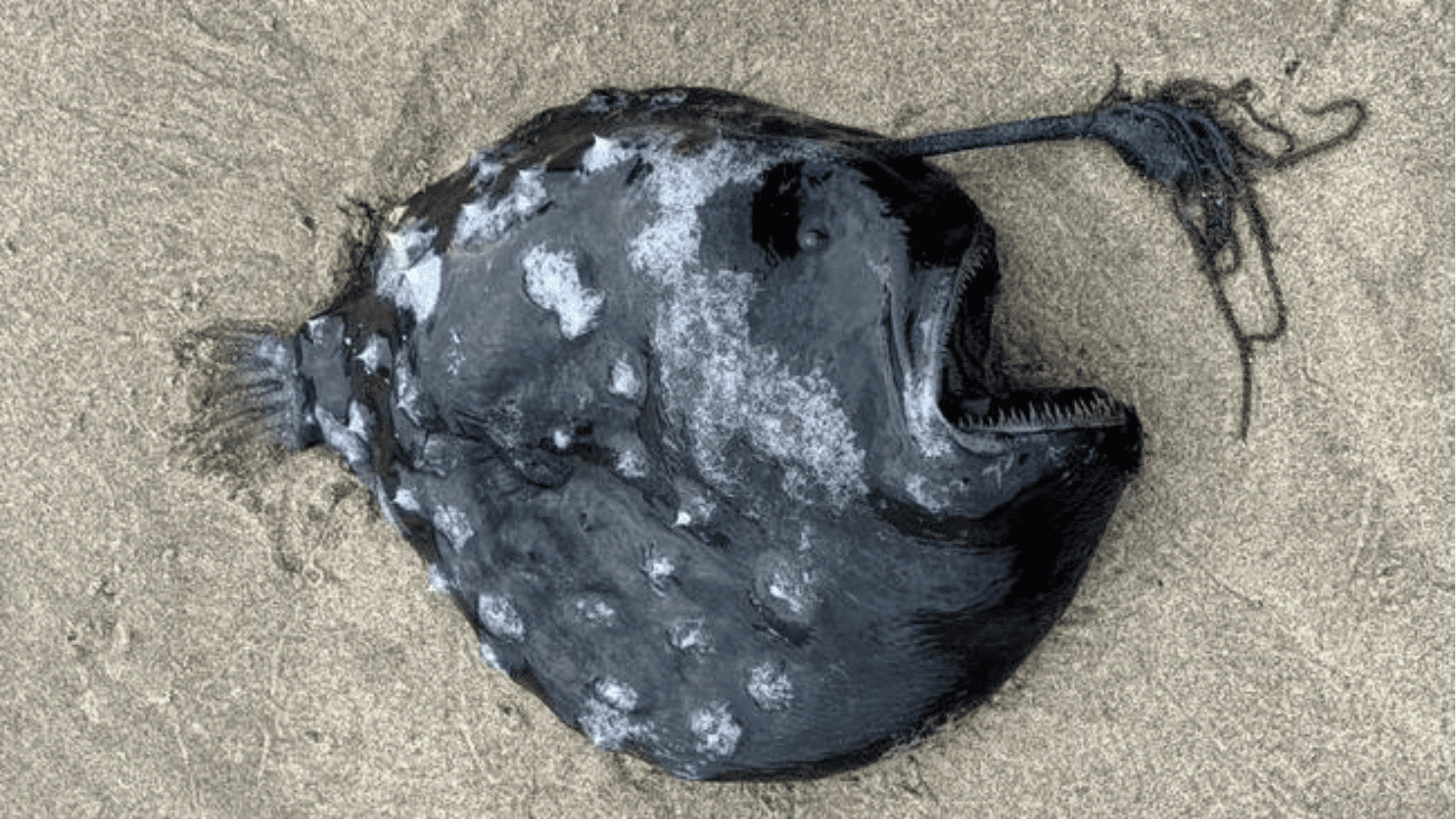
The deep-sea “footballfish” is extremely rare. For the potential first time in Oregon’s history, a footballfish recently washed up on a beach. However, how it washed up on the sand and what could have killed the rare fish is unclear. The scientific name of the Pacific footballfish is Himantolophus sagamius. It’s a species of angler fish lurking in the ocean’s dark depths. This kind of fish lures prey toward their freakish, fanged jaws with a glowing headpiece.
The exact range of a Pacific footballfish is unknown, but scientists believe they live in waters as deep as 3,300 feet below the surface across the Pacific Ocean.
According to a Facebook post from the Seaside Aquarium, people spotted the lifeless deep-sea creature on the shoreline south of Canon Beach on May 19. It’s unknown whether researchers did any further testing and studies on the fish after the aquarium took photographs. If they did, it could shed some light on the mysterious creature and the angler family.
Explore Tomorrow's World from your inbox
Get the latest science, technology, and sustainability content delivered to your inbox.
I understand that by providing my email address, I agree to receive emails from Tomorrow's World Today. I understand that I may opt out of receiving such communications at any time.
A Rarity
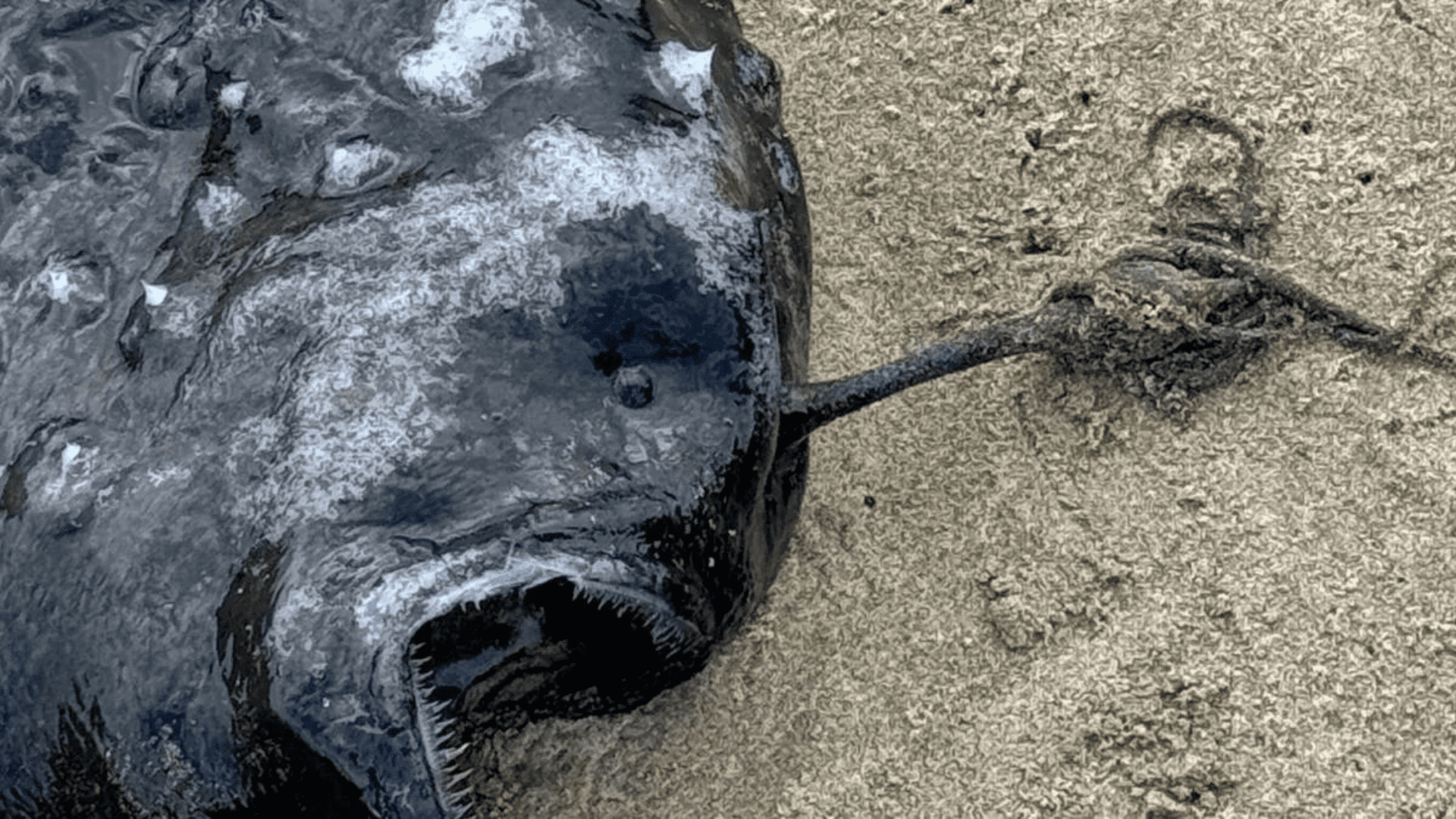
Like most creatures living at extreme depths, the Pacific footballfish is exceptionally rare. The first specimen was collected in 1975 during a deep-sea trawl in Hawaii. According to the Natural History Museum of Las Angeles County, only 30 of these rare fish have either washed ashore or been discovered in the wild.
Seaside Aquarium representatives wrote, “While a handful of football fish have been recorded in New Zealand, Japan, Russia, Hawaii, Ecuador, Chile, and California this is the first one reported on the Oregon Coast to our knowledge.”
Before this case, the most recent discovery of the creature was in October 2023 when a female Pacific footballfish washed ashore on a beach in Crystal Cove State Park, California. Interestingly, in 2021 another female of the same fish was discovered on the same beach.
An Unusual Fish
The Pacific footballfish is a little different than other angler fish. Instead of having a singular light bulb to lure prey, they have multiple. Previous research revealed that fish absorb, reflect, and produce light. Such a thing has not been observed in other angler fish. Researchers believe this might make for more complex and enticing light shows for their prey. These light shows lure prey close to their mouth, and in one swift gulp, the unseen predatory strikes. According to the California Academy of Science, the large rows of spiky teeth prevent the prey from escaping.
Like most angler fish, the female Pacific footballfish are much larger than males. Scientists call this sexual dimorphism. This size difference is the result of an evolutional oddity called sexual parasitism. The males are like parasites and spend their whole lives searching for a female host. They latch on to the first female they find and stay forever.
Seaside Aquarium representatives wrote, “How the males find the females in the pitch dark is still unknown.” Scientists believe this is how the angler fish evolved to thrive in the deep-sea.



